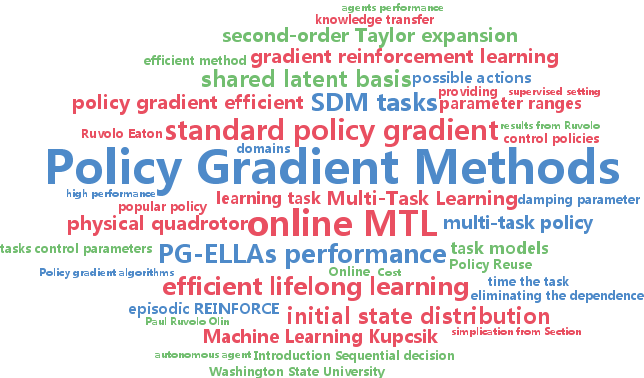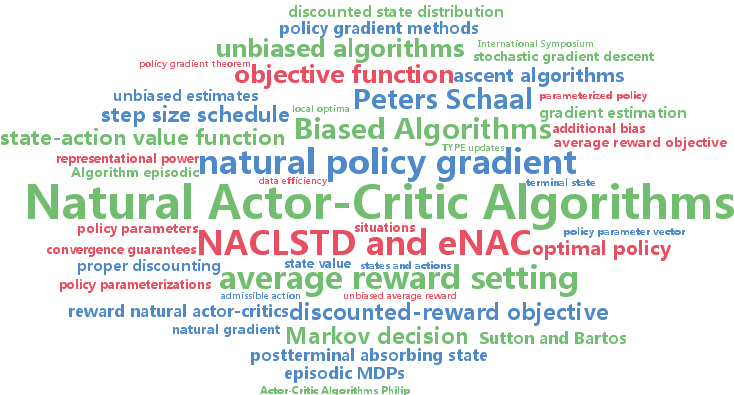policy gradient methods
-
Haitham Bou Ammar and Eric Eaton and Paul Ruvolo and Matthew Taylor
Online Multi-Task Learning for Policy Gradient Methods (pdf)
Policy gradient algorithms have shown considerable recent success in solving high-dimensional sequential decision making tasks, particularly in robotics. However, these methods often require extensive experience in a domain to achieve high performance. To make agents more sample-efficient, we developed a multi-task policy gradient method to learn decision making tasks consecutively, transferring knowledge between tasks to accelerate learning. Our approach provides robust theoretical guarantees, and we show empirically that it dramatically accelerates learning on a variety of dynamical systems, including an application to quadrotor control.
-
Philip Thomas
Bias in Natural Actor-Critic Algorithms (pdf)
We show that several popular discounted reward natural actor-critics, including the popular NAC-LSTD and eNAC algorithms, do not generate unbiased estimates of the natural policy gradient as claimed. We derive the first unbiased discounted reward natural actor-critics using batch and iterative approaches to gradient estimation. We argue that the bias makes the existing algorithms more appropriate for the average reward setting. We also show that, when Sarsa(lambda) is guaranteed to converge to an optimal policy, the objective function used by natural actor-critics is concave, so policy gradient methods are guaranteed to converge to globally optimal policies as well.

